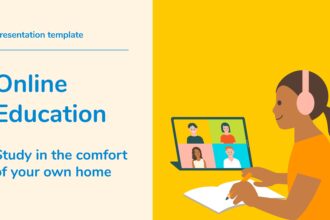As the world continues to evolve digitally, the landscape of education has transformed drastically over recent years. Online learning, once considered a niche or supplementary method of education, has become a fundamental pillar in the way individuals acquire knowledge. As we move deeper into 2025, the question arises: Is online learning here to stay? This article explores current trends, emerging technologies, and insights that reveal the lasting impact and future trajectory of online education.
The Rise of Online Learning: A Rapid Transformation
Online learning has seen unprecedented growth in the last decade, fueled by technological advancements and changing lifestyles. The global COVID-19 pandemic accelerated this transformation, forcing institutions, educators, and learners to adapt quickly. Today, millions of students engage with virtual classrooms, digital resources, and interactive platforms that offer flexibility and accessibility unlike any traditional method.
Moreover, the convenience of learning from anywhere has opened doors for many who otherwise would have limited access due to geographic or socioeconomic barriers. This democratization of education signifies a shift toward more inclusive and personalized learning experiences.
Technology Driving the Future of Education
At the heart of online learning’s expansion is technology. From artificial intelligence to augmented reality, emerging tools are reshaping how courses are designed and delivered. AI-powered systems personalize learning paths by analyzing student performance and suggesting targeted content, ensuring learners grasp concepts efficiently.
Additionally, immersive technologies like virtual and augmented reality provide experiential learning opportunities that bridge the gap between theoretical knowledge and real-world application. These technologies make complex subjects more engaging and easier to understand, fostering deeper retention and practical skills development.
Flexibility and Accessibility: Meeting Diverse Needs
One of the strongest appeals of online learning is its inherent flexibility. Unlike traditional education models, online courses allow learners to set their schedules and learn at their own pace. This feature is particularly valuable for working professionals, parents, and lifelong learners who juggle multiple responsibilities.
Furthermore, online platforms often provide multilingual content, subtitles, and accessibility features to cater to a broad audience, including those with disabilities. These efforts help ensure that education remains accessible and equitable, further solidifying online learning’s role in the future of education.
Challenges That Online Learning Faces
Despite its many benefits, online learning is not without its challenges. One major hurdle is the digital divide—many learners still lack reliable internet access or appropriate devices, limiting their ability to participate fully. Bridging this gap remains essential for the continued growth and inclusivity of online education.
Engagement and motivation can also be difficult to maintain in virtual environments. Without face-to-face interaction, learners may feel isolated or distracted. Educational institutions and platform developers are continuously exploring innovative methods, such as gamification and social learning features, to enhance interaction and keep students motivated.
The Role of Hybrid Learning Models
Hybrid learning, which combines online and in-person education, is emerging as a popular approach to balance the benefits and limitations of both formats. This model offers students the flexibility of digital learning while maintaining the social and collaborative aspects of traditional classrooms.
In 2025, many institutions are expected to adopt hybrid strategies to provide a more adaptable and resilient educational framework. By blending the best of both worlds, hybrid models aim to cater to diverse learning preferences and circumstances, making education more effective and inclusive.
The Growing Importance of Lifelong Learning
The rapid pace of technological and economic change requires individuals to continuously update their skills. Online learning platforms have become vital tools for professional development and lifelong learning. Whether through short courses, certifications, or degree programs, adults can now acquire new competencies on-demand, directly impacting their careers.
Employers are increasingly recognizing the value of these digital credentials, and many incorporate online learning into their employee training programs. This trend indicates that online learning will remain central to workforce development and personal growth well into the future.
Data Privacy and Security Concerns
As online learning platforms collect vast amounts of personal and performance data, concerns about privacy and security have risen. Ensuring that student information is protected and used ethically is paramount. Regulatory frameworks and platform policies are evolving to address these issues, but ongoing vigilance is necessary to build trust among users.
Students and educators alike must be informed about data security best practices, and platform developers should prioritize transparency and robust safeguards to prevent breaches and misuse.
Global Collaboration and Cultural Exchange
Online learning transcends borders, enabling students from different parts of the world to connect and collaborate. This global interaction enriches the learning experience by exposing individuals to diverse perspectives and cultures, fostering greater empathy and understanding.
In 2025, international partnerships among educational institutions and cross-border online programs are expected to flourish. Such collaborations expand opportunities for students and contribute to a more interconnected and culturally aware global community.
Conclusion: A Permanent Fixture in Education
The evidence is clear—online learning is not a passing trend but a permanent fixture in the education ecosystem. Its ability to adapt, innovate, and meet the diverse needs of learners positions it as a powerful complement to traditional education. While challenges remain, ongoing advancements and a focus on inclusivity promise a bright future for online learning.
As we move forward, embracing the possibilities and addressing the hurdles will be crucial to harnessing the full potential of online education. Whether you’re a student, educator, or lifelong learner, the digital classroom is here to stay, offering unprecedented opportunities to grow, connect, and succeed.










